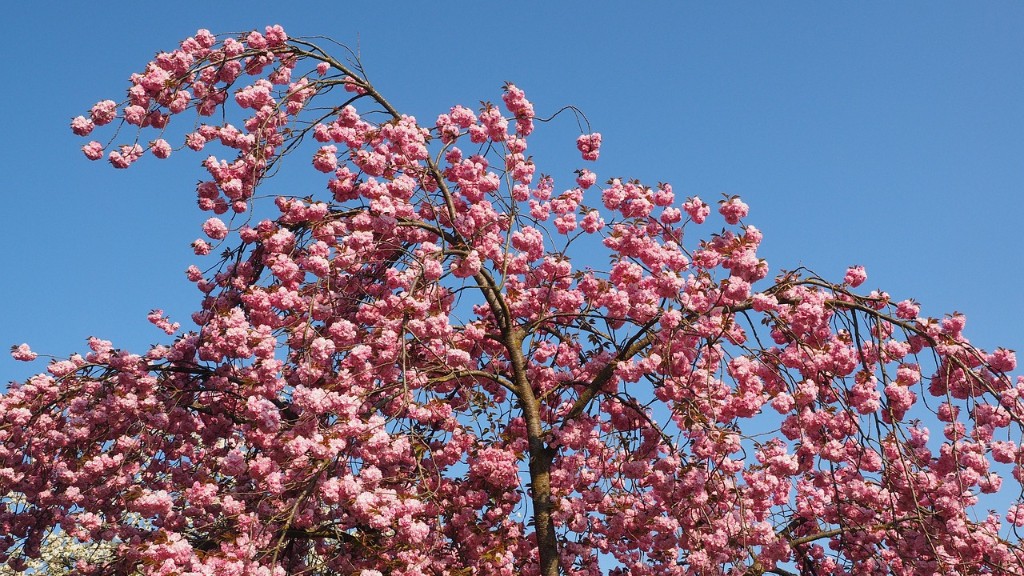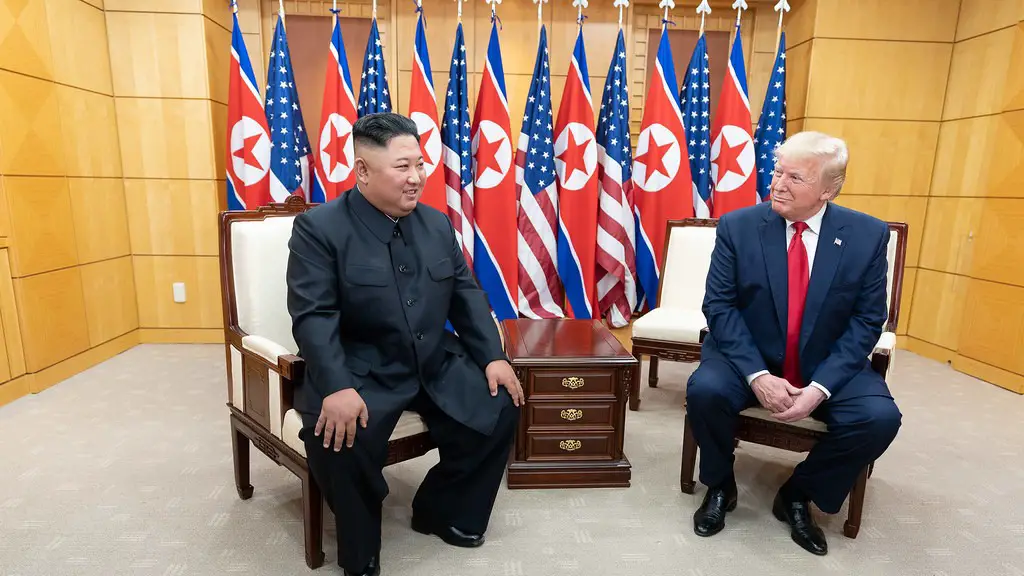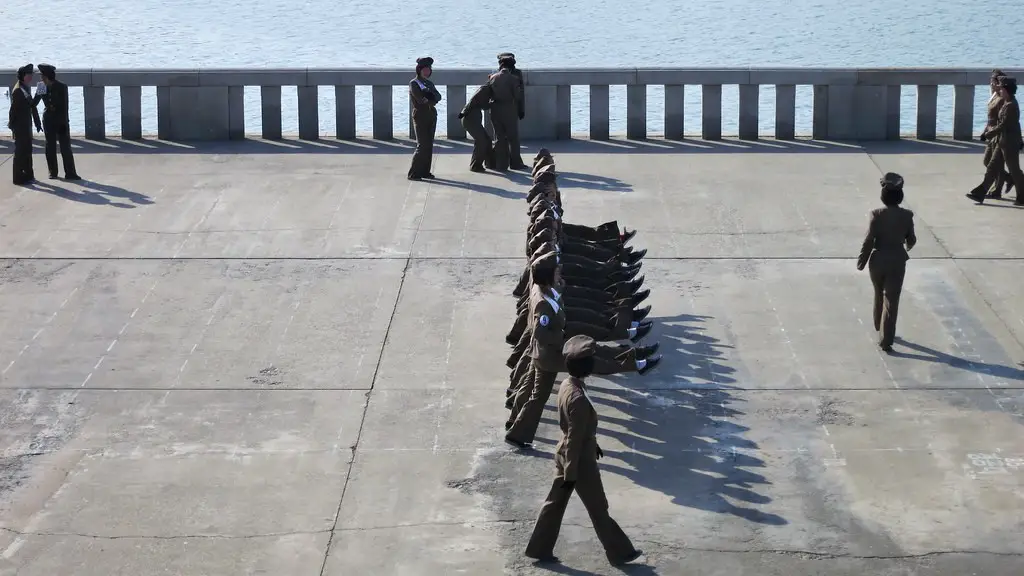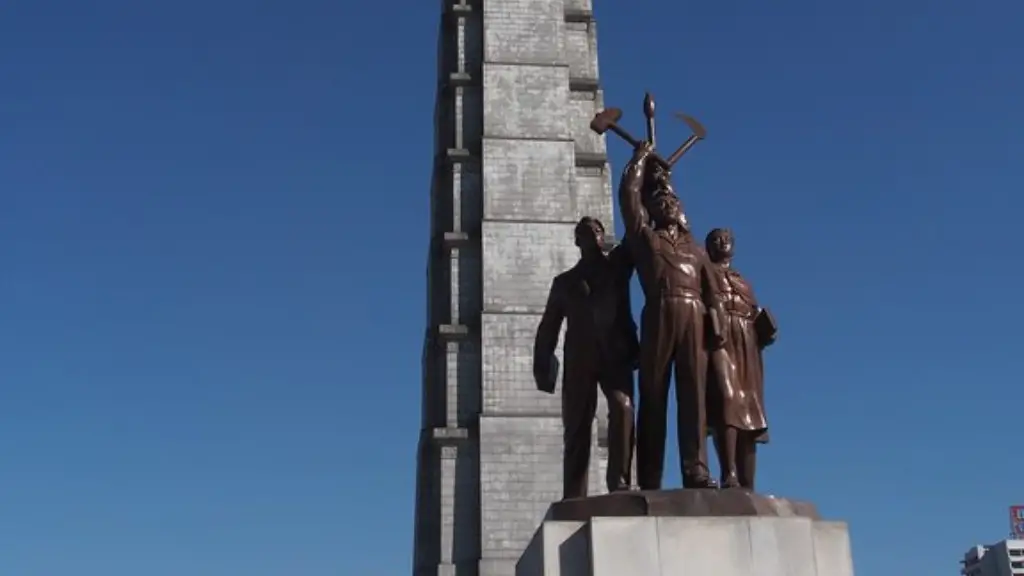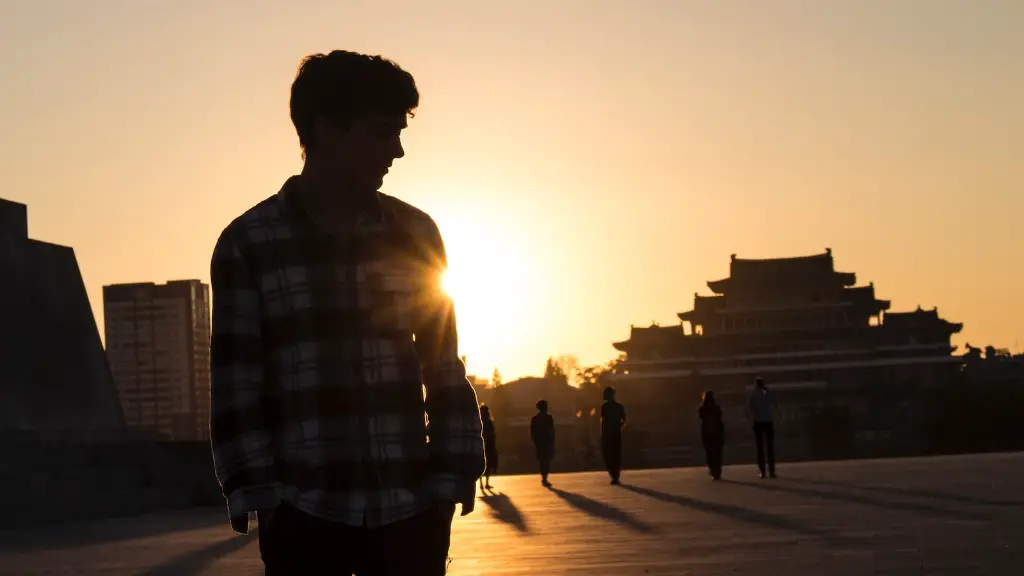Although North Korea’s government is notorious for being one of the most secretive and oppressive regimes in the world, there is still some information known about how it operates. The government is officially known as the Democratic People’s Republic of Korea (DPRK), and is led by the Workers’ Party of Korea (WPK). Below the supreme leader, who is currently Kim Jong-un, there is a hierarchical system of officials and institutions that make up the government. Although much of the information about North Korea’s government is unknown, what is known paints a picture of a brutal and repressive regime.
The North Korean government is a single-party state that is led by the Workers’ Party of Korea (WPK). The WPK is the ruling party in North Korea and controls all aspects of the government. The North Korean government is based on the Juche (self-reliance) ideology, which was developed by North Korean founder Kim Il-sung. The government is also based on the Songun (military-first) policy, which prioritises the military over all other aspects of society. The North Korean government is highly centralised and controls all aspects of the country. The government sets all policy and controls the economy and media. The government also controls education and the arts, and promotes the cult of personality of the Kim family.
What kind of government does North Korea have and why?
The Democratic People’s Republic of Korea (DPRK) is an authoritarian state led by the Kim family for 70 years. Shortly after Kim Jong Il’s death in late 2011, his son Kim Jong Un was named marshal of the DPRK and supreme commander of the Korean People’s Army. Kim Jong Un continued his father’s policy of Songun (“military first”) and by 2012 had consolidated his power to the point where he was declared the “Great Leader” of the DPRK.
Under Kim Jong Un, the human rights situation in the DPRK has deteriorated sharply. The government continues to deny citizens basic freedoms, including the freedoms of speech, religion, and assembly. Those who attempt to exercise these rights are subject to arbitrary arrest, imprisonment, and sometimes execution.
The government also continues to use forced labor in violation of international standards, and subjects detainees in its political prison camps to forced labor, starvation, and torture.
The DPRK is one of the most closed and repressive societies in the world. The government strictly controls all media and information, and does not allow any independent civil society organizations to exist.
The government does not tolerate dissent, and North Koreans who are caught trying to flee the country are subject to arbitrary arrest,
North Korea is an “independent socialist state” that holds elections, though they have been described by independent observers as sham elections. North Korea is a totalitarian dictatorship with a comprehensive cult of personality around the Kim family.
Is North Korea a democracy or a republic
The Democratic People’s Republic of Korea (DPRK, also known as North Korea) is a highly centralised totalitarian state. The government controls all aspects of the society and the economy, and the rights of the people are heavily restricted. There is no freedom of speech, assembly, or religion, and the media is tightly controlled. The economy is centrally planned, and the country is isolated from the rest of the world. The human rights situation in North Korea is extremely poor, and the country is considered to be one of the most repressive regimes in the world.
It is estimated that there are over 100 political prisoners in the country, most of whom are held in conditions that amount to torture. In addition, the government continues to use forced disappearances as a way to silence dissent and instill fear in the population. Other human rights issues include restrictions on freedom of speech, assembly, and association; and discrimination against women, minorities, and persons with disabilities.
Is there freedom in North Korea?
The North Korean constitution does guarantee some basic freedoms, including freedom of speech and assembly. However, in practice, other clauses in the constitution take precedence over these freedoms. For example, the requirement that citizens follow a socialist way of life limits the amount of freedom that people have in North Korea.
The North Korean political system is built on the principle of centralization. The constitution defines North Korea as “a dictatorship of people’s democracy” under the leadership of the Workers’ Party of Korea (WPK), which is given legal supremacy over other political parties. The WPK controls the executive, the legislature, and the judiciary, and the media is tightly controlled by the state. Political dissent is not tolerated, and the regime relies on repression and propaganda to maintain control.
Is North Korea a communist?
In 2009, all references to communism were removed from the North Korean Constitution. However, in January 2021, the WPK reasserted its commitment to communism. The WPK’s commitment to communism does not appear to have changed since 2009, despite the removal of references to communism from the North Korean Constitution.
North Korea’s ideology of Juche, which prioritises self-reliance, has resulted in the country pursuing autarky in an environment of international sanctions. While the current North Korean economy is still dominated by state-owned industry and collective farms, foreign investment and corporate autonomy have increased in recent years. This has led to some economic growth and development, but North Korea remains one of the poorest countries in the world.
Does North Korea have electricity
North Korea’s primary sources of power are coal and hydro, after Kim Jong-il implemented plans that saw the construction of large hydroelectric power stations across the country. According to the 2019 CIA World Factbook, only 26% of North Korea’s population has access to electricity. The country is heavily reliant on its nuclear program for both energy and weaponization. Despite international sanctions, North Korea continues to develop its nuclear capabilities and maintains a large arsenal of nuclear weapons.
North Korea is a country with strict laws about what you can bring into the country. It is illegal to bring in religious, pornographic or political items. Declare all published material and electronic devices when you arrive. It is also illegal to knowingly or unknowingly possess items that breach North Korean law.
Why is North Korea dark at night?
Since the mid-1990s, North Korea has been gradually descending into darkness, both literally and figuratively. Fuel shortages have left the country without power for much of the day, and the lack of access to information and outside contact has made it one of the most isolated nations in the world.
North Koreans are required to obtain permission from the government in order to travel abroad. This is similar to other socialist and communist countries, such as the Soviet Union or Eastern Bloc countries. North Koreans may be allowed to travel for work, study, or personal reasons. However, they are typically closely monitored while abroad and are required to report back to the government upon their return.
Why US citizens Cannot go to North Korea
The Department of State continues to warn against travel to North Korea due to the serious risk of detention and long-term imprisonment. U.S. citizens have been subject to arbitrary arrest and detention, including on charges of “espionage” and “hostile acts.” There have been reports of some detainees being mistreated. The North Korean government has refused to allow many detainees regular contact with the outside world, including access to family and legal counsel.
In many countries, voting against the official candidate or refusing to vote at all is considered an act of treason. Those who do face the loss of their jobs and housing, along with extra surveillance. This is because governments want to ensure that their citizens are participating in the democratic process and supporting the official candidates.
Why does North Korea have no Internet?
Since February 2013, foreigners have been able to use the 3G telecommunications network provided by Koryolink to access the Internet. However, access to the Internet remains tightly restricted for the majority of North Koreans. Nearly all of North Korea’s Internet traffic is routed through China, making it difficult for outsiders to gain a comprehensive understanding of the country’s online activity.
According to recent reports, there is no shortage of booze in North Korea, and no limit on consumption. It could even be considered a national pastime – much like life in South Korea, China and much of East Asia. The main drink of choice is soju. Soju is a clear spirit made from rice, wheat or barley.
What crimes are punishable by death in North Korea
In North Korea, the death penalty is used for many offences. These include grand theft, murder, rape, drug smuggling, treason, espionage, political dissidence, defection, piracy, consumption of media not approved by the government and proselytizing religious beliefs that contradict practiced Juche ideology.
Koryolink is the official name of the 3G mobile phone service in North Korea. The service is now effectively under the control of the state-owned Korea Post and Telecommunications Corporation (KPTC). There has been a large demand for the service since it was launched.
Final Words
The North Korean government is a single-party state that is led by the ruling Workers’ Party of Korea. The government is divided into several departments and ministries, each of which is responsible for a different area of policy or administration. The prime minister is the head of government, and the president is the head of state. The government is responsible for the country’s defense, foreign policy, and domestic policy.
The North Korean government is a tightly controlled dictatorship that does not allow for much freedom or dissent. The government controls all aspects of life in North Korea and keeps a close eye on its citizens. North Koreans have very little say in what happens in their country, and must follow the rules and regulations set by the government.
